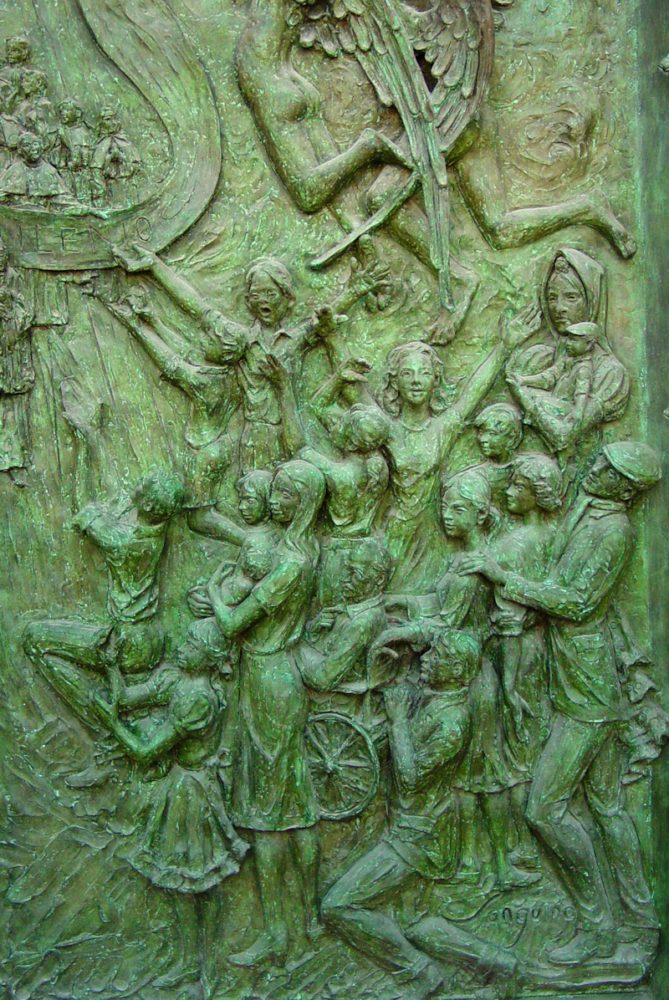
Marty’s photo of the day #3472: This is the last of my Catholic Church photos from Spain until next Christmas. Today’s is of a huge door at the entrance to one of those churches. While I believe that much of the labor to build these magnificent churches came via slaves, this door is actually signed, which tells me that the creator was a respected craftsman. And what is it with the guy in the lower right-hand corner—practically dry humping that woman?
Here’s what I wrote about touring Spanish churches in my first book, Cool Creatures, Hot Planet: Exploring the Seven Continents:
Madrid is a grand old city with gigantic churches, enormous palaces, and magnificent sculptures. The churches in particular were noteworthy.
Roman Catholicism became Spain’s established religion in the sixth century, and it remained that way (except for a brief period) until 1978, when the country’s new constitution declared an end to state religion. The Catholic Church’s long history of wealth and power was on display wherever I looked. Whether it was a store selling silver scepters, golden chalices, and precious metal accessories for the well-dressed priest or the extreme opulence in the cathedrals, all the gold and silver I’d seen in my life up to that point would be a mere speck compared to what I saw in a single afternoon in Madrid.
I felt uneasy walking through churches as if they were art galleries, but no one seemed to mind, and plenty of other people were doing the same thing. I just had to concentrate on keeping my mouth shut. Several times I repressed the urge to shout out, “Wow! Deb, come over here. You’ve got to see this!”
Many of the churches had massive pillars, soaring arches, beautiful gold-framed antique paintings, colorful stained-glass domes inlaid with gold, huge gold and silver pipe organs, and elaborate stations where you could drop in coins to light electric candles. Even the doors, most with intricate three-dimensional artwork, were remarkable sights. Imagine the good the churches could of done if they had invested their money into helping the poor instead of decorating their buildings.